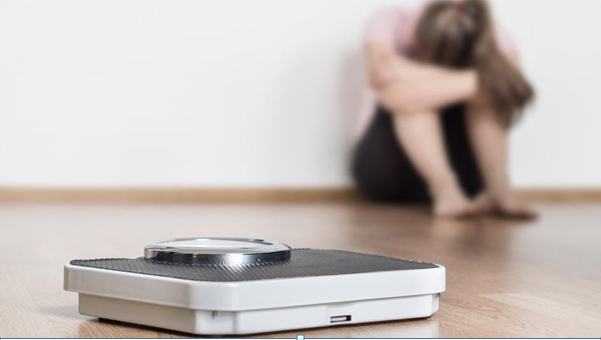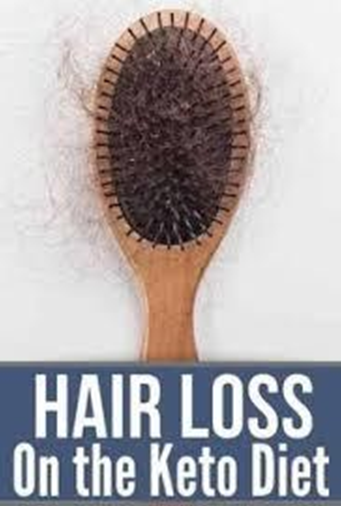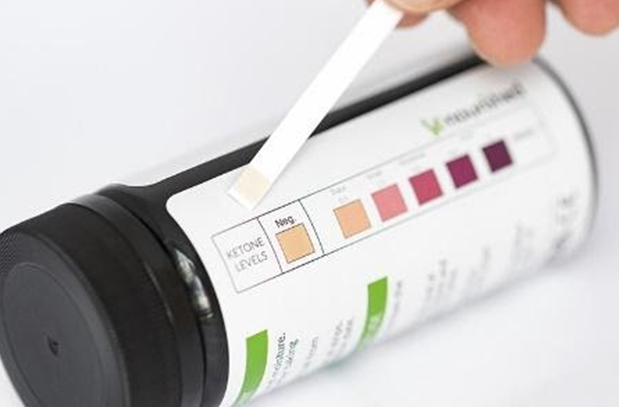Why am I not Losing Weight on a Keto Diet?

We have seen those glamorous documentaries and stories of people who have shed a lot of weight when they opt for keto-diet and without a doubt, keto has changed people’s bodies for the better but we also have heard the stories of people for whom keto-diet hasn’t necessarily worked out and despite their efforts, they haven’t lost weight the way they would expect. There are many reasons all of which end up in you making mistakes during your keto-diet which disturbs the rhythm and minimizes its effects. Some common reasons are discussed.
Calories
In a keto diet, we increase our Fat intake. Fats generally contain more calories per gram when compared to carbs so overeating fats during a keto diet can increase the calorie count in your diet.
When this happens, your body won’t convert your stored fat into energy, but it will convert the extra fat you have taken into fuel just as it would in a normal diet which prevents weight loss.
Constant snacking during a keto-diet even on keto-friendly nuts such as macadamia nuts can also cause a calorie boost and you can end up sabotaging your weight loss efforts.
There is also a chance that you may have miscalculated your carbs and you end up underestimating the carb intake. When it comes to keto diet restricting yourself of carbs can sometimes cause even more cravings for these foods and you can easily deviate from the diet so always make sure that you are sticking to the diet.
Too much protein:
You need to increase the protein in your diet when it comes to the keto diet to a certain extent, but overeating proteins can knock out ketosis and puts your body into a state called gluconeogenesis. In gluconeogenesis, your body breaks down the dietary proteins and other non-carb stuff instead of fats preventing weight loss.
Stress
Any psychological stress, anxiety, lack of sleep or even stress due to the shifting to the keto diet from a conventional diet can cause your adrenal glands to release cortisol which is stress hormones.
Cortisol hormones such as epinephrine and norepinephrine are fight or flight response hormones that prevent the body from going in a fat-burning state so low-stress levels should be prioritized when on a keto diet.
There is a rare medical condition experienced by sine people which is known as food allergies or intolerances, which makes it difficult to lose weight. This stresses your body and makes it difficult to lose weight.
Ketogenic Diet and Hair Loss

People who have gone for a keto-Diet have regularly reported hair-loss, hair thinning is a major concern when it comes to keto-diet. It happens three to six months after a diet and only a small amount of hair is lost.
Keto diet is commonly linked with hair loss there are many scientific reasons behind hair loss
Weight-loss
Massive weight loss is a shock to our bodies. As a result, the body sheds hair, however, the hair will grow back in a few months.
Dehydration
During keto diet when you deplete your glycogen stores you lose a lot of water and often get dehydrated, this is since glycogen draws water and with less glucose or glycogen you will be able to retain less water. With waters, many electrolytes such as sodium, zinc and other necessary ions are lost. These electrolytes are needed for hair growth and healthy hair.
Biotin
Biotin is vitamin H, it is necessary for increasing the thickness of follicles and helps your body convert food into energy.
A low carb high-fat diet has sometimes caused biotin deficiency. People opting form keto diet should consider taking biotin supplements during a ketogenic diet or go for ketogenic foods containing biotin. Our body needs 30 micrograms, so a small dose of biotin is the way to go.
Stress causes hair loss
Stresses are always the reason for hair loss whether it is psychological stress or dietary stress. When going from a conventional diet to keto diet stress is high this is due to calorie restriction, deficits, nutritional deficiencies, psychological stress, keto flu, and keto rash all of which occur during the keto-diet.
This stress can lead to loss of clumps of hair in areas around the scalp, hair readily falling out and trichotillomania in which people pull out their hair during combing without realizing it.
Protein and Iron deficiency:
People on a keto diet can sometimes underestimate proteins since excess proteins can knock out ketosis. You can easily end up with amino acid deficiency which is needed for hair growth.
You can often become iron deficient during a ketogenic diet. Ferritin which is an iron storage protein eventually decreases once you become iron deficient, this decrease in ferritin can cause symptoms of hypothyroidism which can cause hair loss.
What to do if you are experience hair loss during keto diet?
Methylsulfonylmethane builds keratin, a structural protein responsible for hair health. It contains a high amount of Sulphur which makes cystine that is needed to form keratin.
MSM can be taken in supplement form.
Collagen is a protein found throughout your body in connective tissues and is necessary for muscle, skin and hair growth. When it comes to hairs it is a content of hair follicle stem cells.
You can use perfect keto collagen as a collagen supplement. Perfect keto collagen is a collagen derived from cows and combined with an MCT oil.
You can also prevent hair loss in a keto diet from keto foods with high amounts of zinc such as lamb and pumpkin seeds. Coconut oil which has nutrients and iron can help with iron deficiency during a keto diet. This can be used topically or orally.
How Do You Know If You’re In Ketosis?

Some people are of the view that following a keto diet for a few weeks gets you on ketosis. Though frequently they are not calculating their intakes properly. For instance, in keto you can only take 50grms of carbohydrates and anything exceeding that will keep you off from ketosis.
To follow the keto track, you need to monitor your macronutrients-that is what portion of protein, fat, and carbohydrates should in your daily diet. Keto carb calculators give you a rough estimate of how much carbs you are intaking and can be quite useful for a quick start.
When one is n ketosis, the liver produces great amounts of ketones so that it could supply energy to the brain and body. Through the bloodstream, we can measure ketones in our bodies. Numerous ways are discussed below to test whether our body is in ketosis.
Urine strips: Ketone urine strips tell us about ketone quality through color-grading scale. These are an affordable test but can give imprecise results. This test measures the leftover ketones in our bodies. That’s why these strips get darker showing more ketone in our body, especially when you have just started your ketone diet. By the time when one gets used to the diet, the body absorbs more ketone so less are ejected through urine.
Ketone breath meters: Through these test acetone levels are measure when one blows or breathes in the meter. Acetones are water-soluble molecules of ketones. In this test more the acetones we have the more ketosis is I our body
Blood meters: Through blood meters, you can accurately measure the level of ketosis. You just need to prick your finger, draw blood and read the ketones level in your blood. One negative point of these blood meters is that these are quite expensive.
Afraid of these tests? Let’s take another route
You can also avoid the ketosis testing route by recognizing the following signs:
- Fruity-smelling breath also known as the “keto breath”
- High energy levels and more focused
- Feeling less hungry and craving for sugar
- Weight loss
